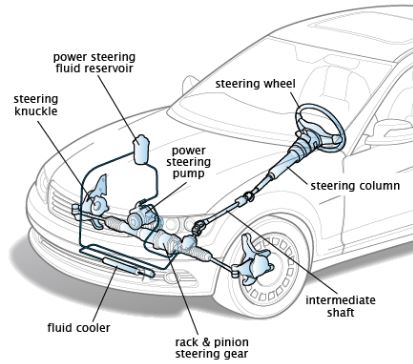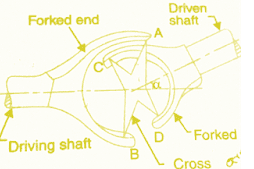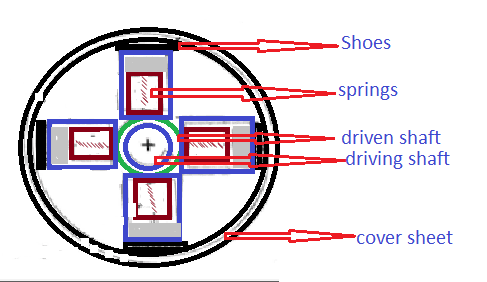What is mechanical engineering?
Mechanical engineering is a discipline that applies principles of physics and materials science to design, analyze, manufacture, and maintain mechanical systems.
What are some common applications of mechanical engineering?
Common applications of mechanical engineering include automotive design, aerospace systems, energy systems, robotics, manufacturing processes, and HVAC systems.
What skills are important for a mechanical engineer?
Important skills for a mechanical engineer include problem-solving, critical thinking, technical proficiency, creativity, communication, and teamwork.
What are the main branches of mechanical engineering?
The main branches of mechanical engineering include mechanics, thermodynamics, robotics, manufacturing, and design.
What software tools are commonly used in mechanical engineering?
Commonly used software tools in mechanical engineering include AutoCAD, SolidWorks, ANSYS, MATLAB, and CATIA.
What is the role of a mechanical engineer in product development?
Mechanical engineers play a crucial role in product development by designing and testing mechanical components, conducting simulations and analysis, and ensuring product functionality and safety.
What is the difference between statics and dynamics in mechanical engineering?
Statics deals with the equilibrium and balance of stationary objects, while dynamics focuses on the motion and forces acting on moving objects.
What is the purpose of finite element analysis (FEA)?
Finite element analysis is used to simulate and analyze the behavior of structures and components under various conditions, helping engineers optimize designs and identify potential issues.
What is the concept of thermodynamic cycles?
Thermodynamic cycles describe the processes and transformations of energy within a system, such as the Carnot cycle and Rankine cycle used in power generation.
What is the significance of tolerances in mechanical engineering?
Tolerances define the allowable variations in dimensions, ensuring that manufactured parts meet the required specifications and can function within their intended systems.
What are the different types of machining processes?
Common machining processes include turning, milling, drilling, grinding, and sawing, which are used to shape and remove material from a workpiece.
What is the role of fluid mechanics in mechanical engineering?
Fluid mechanics deals with the behavior of fluids, including liquids and gases, and their interaction with solid objects. It is essential for understanding fluid flow, aerodynamics, and hydraulic systems.
What is the importance of material selection in mechanical design?
Material selection is crucial in mechanical design as different materials possess varying mechanical properties, such as strength, stiffness, and corrosion resistance, which directly impact the performance and longevity of the system.
What are the key considerations in designing mechanical systems for safety?
Key considerations for designing safe mechanical systems include proper risk assessment, adherence to safety codes and regulations, incorporation of safety features, and conducting thorough testing and analysis.
What is the role of control systems in mechanical engineering?
Control systems are used to regulate and manipulate mechanical systems to achieve desired performance and behavior. They are essential in automation, robotics, and precision control applications.
What are the principles behind heat transfer in mechanical systems?
The principles of heat transfer include conduction, convection, and radiation, which govern the transfer of heat energy between objects or within a system.
What are the factors to consider in material selection for high-temperature applications?
In high-temperature applications, factors such as thermal expansion, heat resistance, thermal conductivity, and oxidation resistance must be considered when selecting materials to ensure optimal performance and durability.
What are the different types of gears and their applications?
Different types of gears include spur gears, helical gears, bevel gears, and worm gears, which are used in various applications such as power transmission, automotive systems, and machinery.
What is the role of mechanical engineers in the renewable energy industry?
Mechanical engineers play a crucial role in the design, development, and optimization of renewable energy systems such as wind turbines, solar panels, and hydroelectric power systems.
What is the concept of stress and strain in mechanical engineering?
Stress is the internal force per unit area within a material, while strain is the measure of deformation caused by stress. Understanding stress and strain is essential for designing structures and ensuring their integrity.
What is the importance of maintenance in mechanical engineering?
Maintenance is crucial in mechanical engineering to ensure the proper functioning and longevity of mechanical systems, reducing downtime, and optimizing performance.
What are the different types of bearings used in mechanical systems?
Common types of bearings include ball bearings, roller bearings, and plain bearings, which are used to support rotating or sliding components and reduce friction.
What is the role of robotics in manufacturing industries?
Robotics plays a significant role in manufacturing industries by automating repetitive tasks, increasing efficiency and precision, and improving workplace safety.
How does vibration analysis contribute to mechanical engineering?
Vibration analysis is used to detect and analyze vibrations in mechanical systems, helping engineers identify potential faults, optimize designs, and ensure system reliability.
What are the environmental considerations in mechanical engineering?
Environmental considerations in mechanical engineering include designing energy-efficient systems, reducing emissions, implementing sustainable materials and practices, and addressing environmental impacts throughout the product lifecycle.


